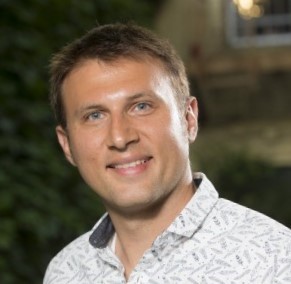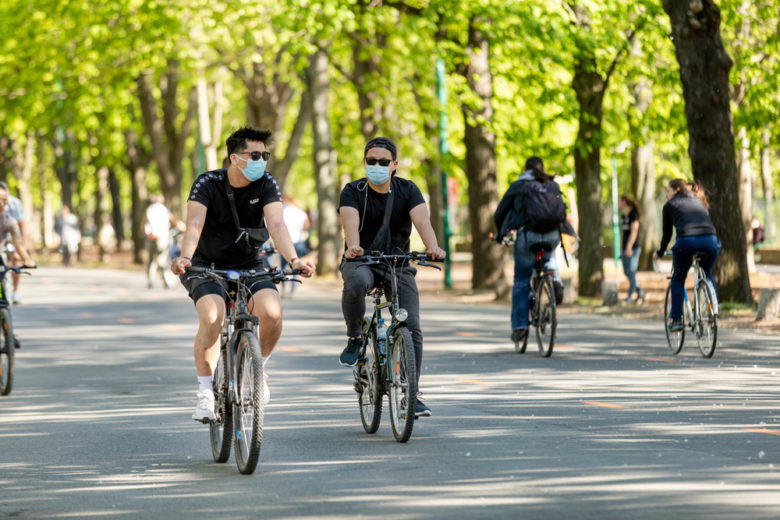The World Health Organization (WHO) has issued a series of vital “prescriptions” in an endeavor to promote a healthier, greener world post-COVID-19. These range from improved air quality to a better diet.
Undoubtedly the biggest global shock in many decades, the novel coronavirus, SARS-CoV-2, that causes the deadly COVID-19 disease, has resulted in hundreds of thousands of deaths and the worst worldwide economic recession since the Great Recession of the 1930s.
At the 73rd, and first-ever virtual, World Health Assembly held on the 18-19 May 2023, the director-general of WHO, Dr. Tedros Adhanom Ghebreyesus, said the pandemic was a reminder of “the intimate and delicate relationship between people and planet.” He also said that unless mankind addresses issues making the earth less habitable, including climate change and the critical connection between pathogens and people, all efforts to make the world a safer place were doomed.
He also echoed what so many are saying, that we can’t go back to the way things were. A return to “normal” wasn’t good enough, he said.
As he stated, the impact of COVID-19 isn’t just a health issue. Nearly half a million people have already died from the virus or related issues and it has affected billions more people worldwide, leaving huge numbers without reliable and affordable access to medical treatment. But it has also disrupted global society and economies.
For decades prior to the pandemic, countries have attempted to save money in ways that resulted in serious neglect of the environment, social safety nets, and health systems, and preparedness for major emergencies like this one, Dr. Ghebreyesus said. This was false economy and the resultant bill is now being paid multiple times over.
He outlined six essential prescriptions required for a healthy recovery from the virus. All focused on issues that contribute to the risks of disease and harm the environment, including global greenhouse gas emissions and exposure to air pollution. Decisions made by leaders will determine what happens in the future: whether the ecological systems that sustain us will be damaged further by future economic development patterns or if the suggestions prescriptions are followed, the world begins to recover and become greener and healthier, he said.
WHO Recommends Six Guidelines for a Healthy, Green Recovery From COVID-19 Worldwide

A clean, healthy environment is key for a healthy, green re covery from COVID-19. Picture: Shutterstock
In his address to the World Health Assembly, Dr. Ghebreyesus said the coronavirus had revealed that people would support policies if those making them were transparent and inclusive, if their decisions were based on evidence, and if the health and livelihoods of the people were protected.
- Nature, which is the source of human health, must be protected
Global economies are created by human societies that rely on the environment for clean air, food, and water. But human activity, including intensive agricultural activities that pollute the environment, the unsafe management of wildlife (including consumption), and deforestation, undermine basic services.
More than 60% of emerging infectious diseases, including COVID-19, are found to have originated from animals, and so there is also a need to implement plans to reduce the risks of future epidemics and ways to control them.
Ultimately, this prescription must lessen the impact man makes on the environment to reduce the risk at its source.
- There must be an investment in essential services for all
Billions of people all over the world lack access to even the most basic services including water, sanitation, and clean energy. In reality, without these services, they face a daily struggle to stay healthy and avoid contracting deadly infectious diseases like COVID-19. It is also a reality that anti-microbial pathogens are widely found in waste and water and if they are not properly managed they can spread to humans. Without reliable energy, it is virtually impossible to carry out medical procedures and to provide occupational protection for medical and health workers.
About 25% of all deaths worldwide are caused by environmental and occupational risks that could be avoided. It is therefore essential to invest in healthier environments and environmental regulations and to ensure that health systems are resilient to climate.
There is no doubt that mechanical, electrical and plumbing (MEP) engineering services will play a vital role in backing up this investment and helping to guard against future disasters.
- Steps must be taken to achieve a quick, healthy, transition to renewable energy
Statistics relating to air pollution and death are horrifying. More than 90% of the world’s population breathe some outdoor air that has pollution levels that exceed the air quality guideline values issued by WHO. And more than 7-million people die as a result of exposure to air pollution every year.
Two-thirds of outdoor air pollution results from the burning of fossil fuels – it is these same fossil fuels that are responsible for climate change! Yet, renewable energy is becoming cheaper and more reliable, and the sector offers many safe, well-paid jobs.
WHO warns that decisions made now about energy infrastructure will have long-lasting consequences. There is a real need to factor in the interests of public health and the full social and economic consequences of decisions.
In essence, this prescription strongly encourages renewable energy sources that will lead to cleaner environments and people who are healthier.
Interestingly, countries hard hit by COVID-19 early on, including Spain and Italy, and others that have been particularly successful in controlling the disease, like New Zealand and South Korea, have incorporated green development in their recovery strategies. These include the improvement of indoor air quality in buildings as well as the reduction and eventual elimination of fossil fuels.
- Sustainable, healthy food systems must be promoted
Global ill health and disease is fueled by both the consumption of unhealthy food and a lack of access to food per se. It also increases people’s vulnerability and the risks of conditions like obesity and diabetes which, along with HIV and hypertension, is a prevalent comorbidity in deaths due to COVID-19.
There are many challenges, including the fact that agriculture contributes to about 25% of global greenhouse gas emissions, and changing land use is a major environmental cause of new disease outbreaks.
WHO strongly encourages communities worldwide to follow its dietary guidelines which promote healthy, sustainable, nutritious diets. This, in itself, would help to reduce the risks of disease and save millions of lives. It would also help to reduce greenhouse gas emissions.
- Healthy, livable cities must be built
More than half of the people in the world live in cities, which means, in turn, that they are responsible for more than 60% of the economic activity in the world, and also a large percentage of greenhouse gas emissions.
Solutions proposed by WHO include increased, upgraded public transport, and walking and cycling that will provide numerous health benefits by reducing air pollution and traffic accidents, and reduce the huge number of annual deaths (around three million) from physical inactivity. Some cities, including London, Paris, and Milan, have already started expanding cycle lanes and making streets more pedestrian-friendly.
- Taxpayers money must no longer be used to fund pollution
According to WHO, about US$400 billion is spent on subsidizing fossil fuels every year – and this causes air pollution and drives climate change.
The Organisation’s proposal is that a price should be placed on polluting fuels that correlates with the damage they cause. This, it says, could cut greenhouse gas emissions radically by about 25%, it could also halve outdoor air pollution deaths and increase the revenue of global GDP.
The message is for the world to stop paying pay for pollution in both money and health.

Michael Tobias is the founder and principal of Nearby Engineers and New York Engineers, an Inc 5000 Fastest Growing Company in America. He leads a team of more than 30 mechanical, electrical, plumbing, and fire protection engineers from the company headquarters in New York City, and has led numerous projects in New York, New Jersey, Chicago, Pennsylvania, Connecticut, Florida, Maryland, and California, as well as Singapore and Malaysia. He specializes in sustainable building technology and is a member of the U.S. Green Building Council.






